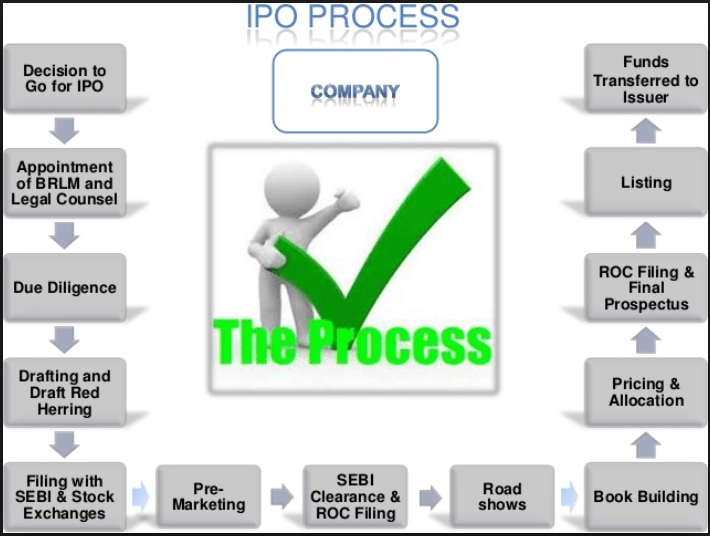Is it Good to Invest in IPO

"There is a common myth that a company's shares are undervalued during its IPO and hence the early subscribers of the IPO feel that they have made a very good deal. However, IPOs are the by-products of a bull market and they are generally over-priced.Hence "Unless you have a long time horizon and a high level of risk tolerance, the answer is generally no"
What is an Initial Public Offering (IPO)?
When a privately held company offers its shares for the first time to the public, then it is called an Initial public offering (IPO). It is a way for companies to enter the stock market to raise share capital. Until a company offers IPO, the public is not able to buy the company's share.
Initial public offerings, or IPOs, can be rather volatile in their first few months of trading. The point is that after its IPO, a stock's price can move dramatically. Sure, many IPOs double just weeks after going public, but others get cut in half or more.
The owner and the initial investors of the company (like angel investors, venture capitalist, etc) are the ones who get maximum profits during an IPO as they are able to sell the shares at a good price.
A lot of investors have made huge wealth by investing in IPOs. Had you invested in 'Reliance' when it got listed, you might have been sitting at a huge pile of wealth today.
However, the performance of most of the IPOs in the Indian stock market is not very satisfactory. The number of IPOs underperforming in the long-term are comparatively quite larger than the number of IPOs that perform well in the market.
Further, it is worthwhile to note that IPOs are normally not priced in the benefits of the public.
In the case where few IPOs are fairly priced, it gets a lot of demand from the public during its offerings and gets over-subscribed. Moreover, it soon becomes over-priced once it starts trading in the market.
The promoters of the company sell their stakes only when they are confident of getting a good price. This generally happens only in a bull market.
During a bull market, the owners of the company can raise enough funds for their cause as the public is optimistic. People are willing to pay good prices to buy shares of the company.
Here are some steps to identify good and bad IPOs.
- Look at the company's past, future
Firms that come to public for an IPO issue the red herring prospectus (RHP), which shows revenue and earnings the company has generated. You should look to see whether the company is profitable and growing. The company also presents its projected financial statements along with the risk factors. You should read this carefully and make your own estimation of the projections.
- Promoters Track record
It would always be good to invest in a company where the past records of promoters show good performance of their company and have a good corporate governance structure in their companies.
- Purpose of IPO
The prospectus issued by the company state what the company's plan to use the money it raises from the IPO. If it uses the cash for its expansion, diversification or activities related to the growth of the company, it is a good idea to invest in those companies but, if it uses the cash to repay its long-term loan or in other activity which may not lead to future growth, it is a good idea to stay away from those IPOs.
- Do a peer to peer evaluation
The most popular method of evaluation of an IPO is through peer valuation. A comparison of the price of an IPO with the share price of its peers which are already trading in the market can give you an idea of whether a new offer is overvalued or undervalued.
- Don't aim for short-term gains alone
Those who are looking to make short-term gains should invest in the new offers only when the markets are bullish because the success of an IPO also depends a lot on the market sentiments at the time of listing.

Conclusion:
If you are willing to invest for long-term, then be cautionary about investing in IPOs. Focus on the quality of the company, not the hype generated by media or underwriters.
Nevertheless, you can always pick these companies from the secondary market once the hype is over and the price is attractive.
The bottom line is that you shouldn't invest in an IPO with money that you can't afford to lose. If you don't want to gamble with your investment, you're probably better off waiting until the stock has been trading for a while in order to be able to properly evaluate it and to let the post-IPO volatility subside.
One should look at many things when evaluating an IPO's potential but make sure to check the above points and do your own due diligence before investing in an IPO.



0 Comments